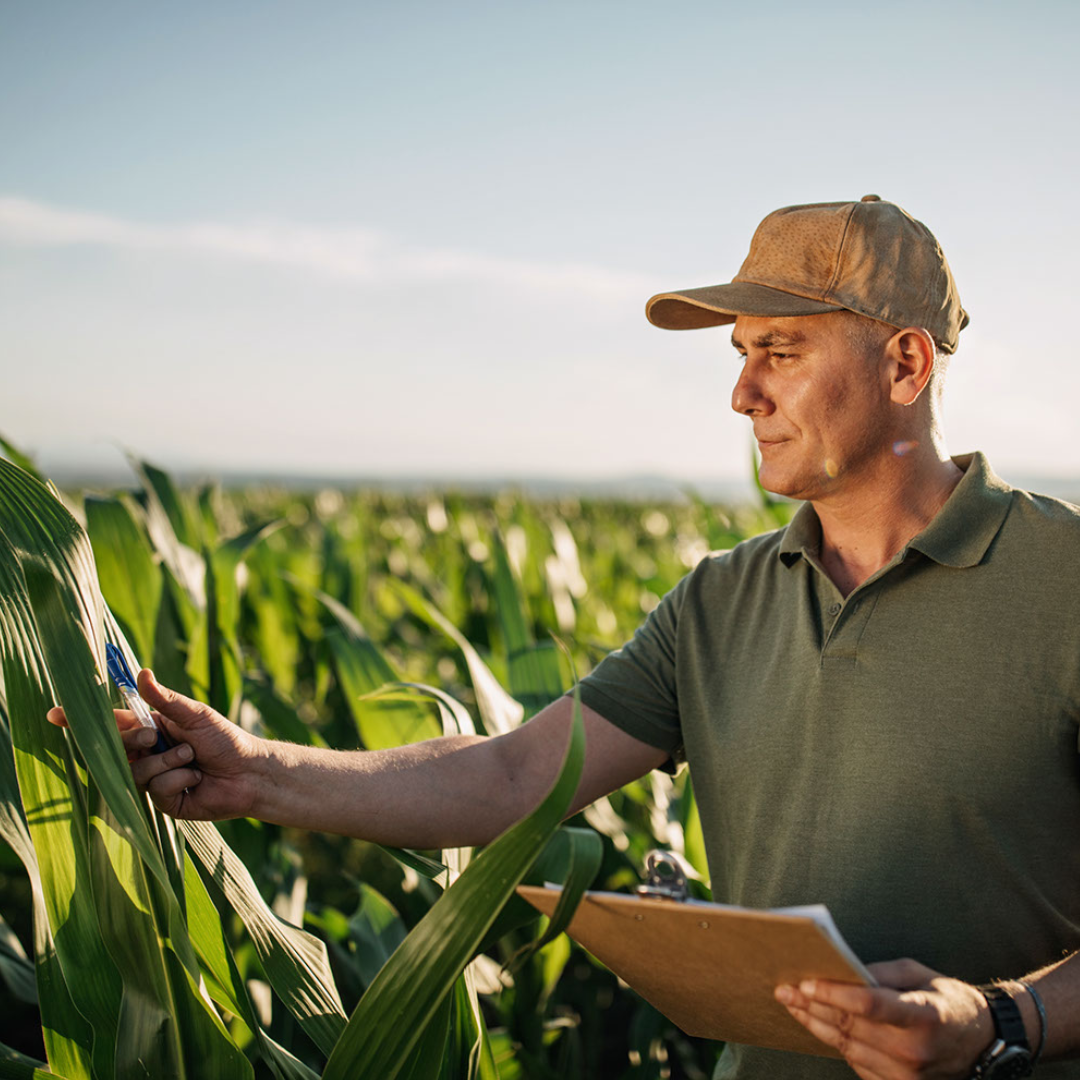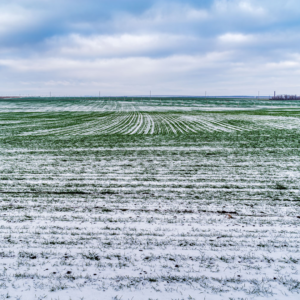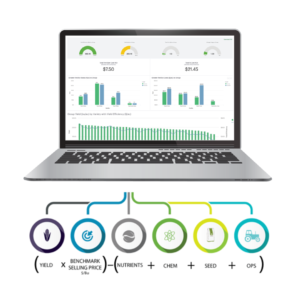
Today we are talking with Darren about the future of ag data and our plans for the next few years as a company. We also cover emerging technologies, trends, and what to expect as a farmer in 2021 and beyond.
About Darren: CEO and President of Premier Crop. Fehr joined Premier Crop in 2018 and has successfully led the company in significant growth over the last two years. His passion for mentoring, leading and growing the business will be instrumental in the future of Premier Crop.
If you are enjoying the show, tweet us using #PremierPodcast.
RENEE HANSEN: Welcome to the Premier Podcast. Darren, thank you for joining us. I wanted to talk to you today about some of the trends that are happening in precision ag, and the future of ag data right now. There’s going to be an increased adoption of variable-rate technology, predictive analytics, more forecasting. There’s remote sensing, robotics, all of these things that are happening in precision ag right now. How is Premier Crop going to stay relevant in this market?
DARREN FEHR: Well, I think, first of all, I’m not sure we’re exactly responding to some of the global trends. I think we’re responding to our vision of serving growers and helping them improve yield efficiency. And part of the innovation story is: how do we effectively use the data to help them make these kinds of decisions that we’re going to see both an agronomic and economic lens to it? So, overall, I would say our innovation story is driven by using the kind of data that allows us to share best practice. That allows us to benchmark against other fields and against other farms and allows us to take in the overwhelming amount of data to be able to drive analytics and insights.
RENEE HANSEN: There are a lot of players in this market space. There are so many, and it’s hard to differentiate who does what. So how does Premier Crop differentiate?
DARREN FEHR: I think one of the ways we’ve always differentiated is we’ve taken the variable-rate prescriptions that we have created and actually taken them to yield, actually done some analysis and say: ‘How do we get better? How do we make these more effective?’ And what we see in the world of precision ag, in general, over the last two decades has been: ‘Let’s make sure we get some methodology on how we create a variable-rate prescription.’ So analytics and benchmarking has been a really important part of our business over the last decade. It will continue to be a very important part.
RENEE HANSEN: Great. And you say it continues to be an important part. Where’s Premier Crop going in the future? What is the innovation that is driving Premier Crop to continue to be better? You mentioned best practices. And also Premier Crop does a lot of the hard work by getting the yield. Some other companies in the market do not do that. What is our innovation moving forward?
DARREN FEHR: I’d say that our focus has been on managing variability through zone management and learning blocks and enhanced learning blocks. We’ve done a lot to create new knowledge and develop this right-rate technology. What our future looks like is continuing to drive best-in-class recommendations, looking at the agronomic areas that have some commonality and treating those areas differently. We know that when you generalize a large, large area, some of those areas will respond better than others. And what we have done is create these different like-agronomic environments, if you will, to understand that we’re going to treat these types of soils and these types of environments differently than others. And it’s all in the ambition to create the best, world-class recommendations. To ultimately drive the highest return to land and management and using data insights and performance analytics to do that.
RENEE HANSEN: But what about these growers who have tried this before? And they’re just like: ‘You know what? This didn’t work.’
DARREN FEHR: We come across that all the time. This is probably one of the most common discussions we have: ‘Why should I come back to precision ag when I’ve been there, done that, and it didn’t work?’ And I would say part of the differentiation here is the way we organize the farm, the way we create zones, the way we create recommendations and the way we actually do the analytics gives a way more comprehensive view of the farm. One of the differences is that we share in the learning. It’s a journey that we learn together with our customers. We create new knowledge to look for new benchmarks, new high watermarks, if you will, in productivity. That’s been a really key testimonial from some of our existing customers: ‘I have learned so much in this process.’
RENEE HANSEN: You’ve mentioned benchmarking a couple times, and benchmarking comes from data. Premier Crop has and houses a lot of data for our customers, so how important? We talked about some of the trends going in precision ag, and some of that is predictive analytics. Some of that is machine learning. What is Premier Crop doing to stay relevant in that space to continue with this benchmarking in this huge source of data that we are sitting on?
DARREN FEHR: Yes, definitely, some of our new recommendation tools will most definitely have machine learning data concepts involved. We have developed a lot of different recipes for different agronomic environments based on actual data over time, based on the soil environments. So we’re really not doing that much on predictive analytics, but we’re focused on prescriptive analytics. And that would be probably our key data science tool that we’re using in the platform that we’ll be launching next fall.
RENEE HANSEN: And you said not necessarily an algorithm, but more of a methodology that our data scientist is working on and working through to figure out, you say, best-in-class recommendations, the best recommendations. Why is that so important? Why is finding the best recommendations so important for the farmer tomorrow?
DARREN FEHR: Well, I think it comes down to, maybe, one of our core values, and that is getting data right. Data accuracy has been a really incredibly important part of what we do. Everything falls apart if we don’t have the right data going in. Then, the benchmarking part is we know that there are similar environments out there with dramatically different productivity spectrums. So what we’re trying to do is understand and learn from those similar environments, to say: ‘Why did one area do better than the other? And can we actually bring up all of the productivity for that type of area through some of this shared journey?’ The other part of that is to drive a higher watermark. We’re definitely looking at some of our own R&D initiatives to look for new productivity levels. That’s all part of our innovation journey over the next two years.
RENEE HANSEN: What would you say to a grower or an advisor or a partner who is not yet working with Premier Crop? Why should they come on board? Why is this such an exciting time within Premier Crop’s footprint and moving forward?
DARREN FEHR: Well, number one, I see more farmers wanting to be professional farmers. And what I mean by that is I am farming with a purpose. I am farming with a purpose to be as efficient as I can be. I want to be profitable. This is a lifestyle that I love. It’s great for our family, and we want it to be here and in better shape than we left it. We have this whole story around farmers. Farmers are getting bigger. They’re getting better. I think it’s important that every professional farmer has a data partner that they can rely on. Trust and credibility and confidence are really key factors in this story of getting better and farming more efficiently. There are a lot of factors to that. I think we’re one that should be considered as farmers strive to hit higher profitability benchmarks.
RENEE HANSEN: You talk about profitability. We didn’t really mention that in the beginning. We sit on all of this data. We’re talking about benchmarking, and we also go into the agronomic. But Premier Crop is also really about economics too. That’s a highly important part of the direction that we’re going, to continue to have a farmer be profitable. So we’ve come up with a yield efficiency score. We launched that over a year ago. We’re going to continue with that too, on top of these best recommendations. So tell me a little bit more about how the pairing of that will really move the needle forward for Premier Crop.
DARREN FEHR: Well, I think the context of this is for two decades or more, the success metric has been yield, and what we very quickly realized many years ago is all yield is not created equal. Some yield requires a lot more inputs and a lot more effort than others, and what we’re looking at is managing. In this quest to manage variability, let’s also manage costs through that variability. That’s where the concept of yield efficiency came from. And it makes perfect sense because we find that more and more people are looking for some type of performance analytics in both areas of agronomy and economics and farm finance. I think we’re responding to a market need. I don’t see a lot of people wanting to go into this space. It’s complex. It is not easy for us to do this, but we are very focused on improving yield efficiency with our farmer customers. So we have our lead advisor network also very much in tune with this idea and this concept. We’re really proud of this direction and committed to it, as well.
RENEE HANSEN: Yeah, I like how you mentioned one of our core values of data accuracy. But I think when it comes down to it, Premier Crop, since day one, has always been about the success of the farmer. How can we continue to make the farmer more efficient, more profitable? Help them also with their agronomy, their analytics, and Premier Crop is going to stay true to that moving forward in the future, as well.
DARREN FEHR: Yeah, I would definitely say that, as a culture of our company, I’ve never seen a group of people more committed to customers than this group. Everything we do is focused on our customers. We work through our partners and with our partners. But at the end of the day, if our customers are not performing at a higher level, we realize that they have other options. Our goal is to be the highest performing partner/service provider possible.
RENEE HANSEN: Yeah, and we even see that through the feedback. So we really thank our partners and customers who work with us every day and continue to work with us in the future. Thank you, Darren. I really appreciate your insight, your perspective. Is there anything you’d like to leave us with as we leave the podcast today?
DARREN FEHR: Well, it’s an exciting time. We’re getting through a bit of a technology bubble, and I think we’re settling into what is the emerging technology that will advance agriculture. I feel like we’re in a great position. I feel like we’re squarely centered in that. We’ll be focusing a little more on mobile solutions and some on in-season and crop diagnostics but focused on soil more so than some of the above-ground metrics. So look for that. We have an exciting innovation pipeline ahead of us, and we’re excited to deploy that over the next three years.
RENEE HANSEN: Great. Thanks, Darren.
DARREN FEHR: Take care. Thank you.
RENEE HANSEN: Thanks for listening to the Premier Podcast, where everything agronomic is economic. Please subscribe, rate and review this podcast so we can continue to provide the best precision ag and analytic results for you. And to learn more about Premier Crop, visit our blog at premiercrop.com.





